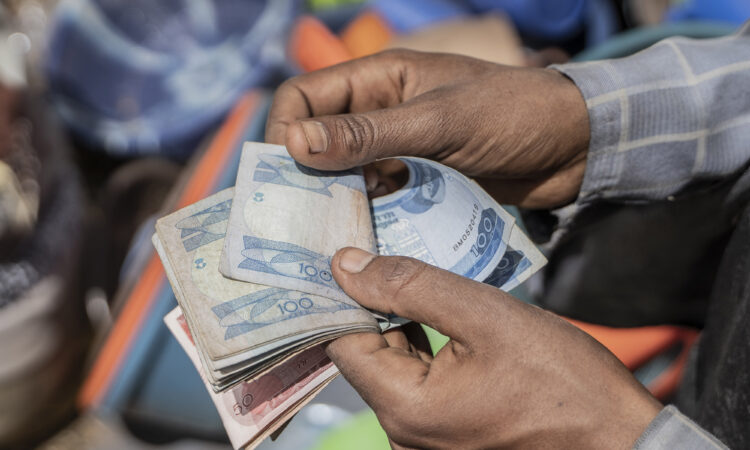
Ethiopian Prime Minister Abiy Ahmed berated banks for keeping the exchange rate of the nation’s currency at much stronger levels than what traders in the parallel market were offering.
The Horn of Africa nation on Monday removed its peg to the dollar resulting in the birr depreciating 23% to 74.74 against the dollar. By Thursday it was trading at about 80 birr, compared to 113 birr that street traders were offering. Their rate has since moved to 118 birr per dollar.
“What you’re doing is not right,” Abiy told bankers in comments aired on the state-run broadcaster on Thursday. “We told you to unify the official rate with the parallel market rate, but you are crawling.”
Hours later, Awash Bank, one of the country’s biggest privately held lenders, offered to sell the birr at 94.50 per dollar. East Africa’s biggest economy floated the currency to win a $3.4 billion bailout from the International Monetary Fund and lure foreign investors.
Abiy is concerned that a large spread between the official and parallel rates will deter much-needed dollar inflows. The nation had reserves sufficient to cover just 0.5 months of imports in the year that ended July 7.
“Our goal was to minimize the gap between the parallel and official markets,” Abiy said.
The spread resulted in residents hoarding foreign exchange waiting for the currency to weaken further, street traders said.
State-owned Commercial Bank of Ethiopia, the nation’s biggest, was trading currency at 85.62 to the greenback. Dashen Bank offered birr at 98.05 to the dollar, 41% weaker than a week ago.
Ethiopia has struggled with securing foreign exchange in recent years as exports failed to keep up with rising imports. Two years of civil strife also unnerved investors and forced concessional lenders to pause aid, restricting flow of much-needed funds.
The IMF program helped unlock another $16.6 billion in commitments from the World Bank and could lead to the restructuring of a portion of its debt by both bilateral and commercial lenders.
– Bloomberg







